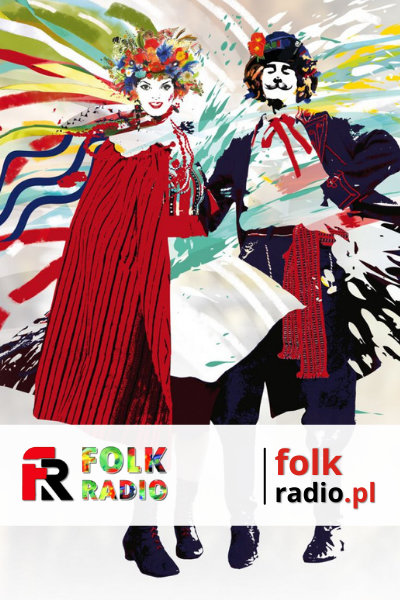W 1942 roku, przed akcją wysiedlenia Żydów z Pińczowa, Julian Laskowski zgodził się ukryć rodzinę swojego znajomego Ajzyka Hajzykowicza. Była to siostra Ajzyka, Dina, wraz ze swoim mężem Lejzorem i dwójką dzieci: 7-letnim Wiktorem i 5-letnią Haną.
Julian, który mieszkał w domu rodzinnym z rodzicami i licznym rodzeństwem, nikomu nie powiedział, że ukrył w gospodarstwie Żydów. „Jak on to robił? Nie wiem. Nie wyobrażam sobie, żebym mogła coś takiego ukryć w domu przed dziećmi, czy mężem” – mówi Grażyna Spaczyńska, córka Juliana. Pomagał ukrywanym, jak tylko mógł, tak żeby nikt niczego nie zauważył. Kradł jedzenie z domu, np. świeżo upieczony chleb albo zsiadłe mleko, żeby nakarmić ukrywane dzieci. „Matka mówi: gdzie jest ten chleb? A, koniom dałem” – wspomina żona Juliana, Wanda Laskowska. Po pewnym czasie wtajemniczył w pomoc Żydom jedną ze swoich sióstr, Józefę, która mieszkała w pobliżu ze swoim mężem i zaczęła mu pomagać.
Tragicznym epizodem w historii ukrywania Żydów była śmierć ojca rodziny, Lejzora, który wyszedł z kryjówki i został zastrzelony przez niemiecki patrol. Zginął wtedy także brat Diny, Ajzyk.
Pewnego dnia okazało się, że ktoś doniósł na Juliana. W jego gospodarstwie przeprowadzono rewizję. Żydów nie znaleziono, bo Julian ukrył ich wcześniej pod podłogą remizy. Mimo to, przeszedł ciężkie bicie, w wyniku którego chciano wydobyć z niego informację o miejscu ukrywania Żydów. „Tata powiedział sobie w duchu: nie mam jeszcze rodziny, najwyżej mnie zastrzelą, ale matka z dwojgiem dzieci przeżyje” – wzrusza się pani Grażyna.
Od tamtej chwili Julian często zmieniał kryjówki dla ukrywanych. Ukrywał ich m. in. w remizie, w stodole, w lesie, podziemiach starego domu i snopach słomy na polu. Szczęśliwie wszyscy doczekali końca wojny.
W latach 50. Dina Nawarska z dziećmi wyjechała do Izraela. Podobnie jak jej dzieci: Hana i Wiktor, kontaktowała się z Julianem do końca jego życia.
Kiedy Julian Laskowski umierał, przy jego szpitalnym łóżku zgromadzili się przedstawiciele i potomkowie uratowanej rodziny. „Nie mówił już, ale poznał ich. I płakał, widząc kto przyjechał do niego…” – wspomina córka Juliana.
Julian Laskowski został odznaczony medalem Sprawiedliwego Wśród Narodów Świata w 1985 roku. Kilka lat później, w 1992 roku Yad Vashem przyznało wyróżnienie także jego siostrze, Józefie Karbowniczek.
English version
Episode 12.
From the bottom of the heart. Julian Laskowski and Józef Karbowniczek. Pawlowice. Part 1.
1942. Before Jews deportation from Pińczów, Julian Laskowski agreed to hide Ajzyk Hajzykowicz’ family. Julian and Ajzyk were acquaintances. Ajzyk’s sister Dina, her husband Lejzor and two children: 7-year-old Wiktor and 5-year-old Hana were offered a shelter.
Julian lived in a family home, his parents and numerous siblings shared the same house. Julian did not tell anyone that the Jews were hiding on the farm. „How did he do that? I do not know. I cannot imagine I could hide conceal such information so that my children and my husband would not know about it”- says Grażyna Spaczyńska, Julian’s daughter. Julian helped those in the hiding and made sure nobody would catch him. He would steal food from the house for the children. He carried freshly baked bread and curdled milk into the hiding place. „Mother would: where is the bread? I fed it to the horses” – recalls Julian’s wife, Wanda Laskowska. After some time Julian secretly informed his sister Józefa about the Jews in the hiding who were helped. Józefa and her husband lived nearby. From then on the couple also supported Julian.
There was also a tragic episode in the Jews’ history. Lejzor the father of the family left the hiding place and was shot by a German patrol. Dina’s brother, Ajzyk was also killed then.
One day Julian was reported to Germans. The farm was searched, yet the Jews were not found. Julian had hidden them under the fire-station’s floor earlier. Julian was battered. This violence was supposed to pry information about the Jews’ hiding place. „Dad said to himself: “I do not have a family of my own yet. They will shoot – this is the only risk. A mother and two children will survive” – Grażyna is moved when recollecting her father’s words.
Since then Julian had often mowed the Jews into new hiding places. The fire station, the barn, the forest, the old house’s cellar and the sheaves in the field – there were many dens. Fortunately, the family lasted out until the end of the war.
In the 1950s Dina Nawarska and her children moved to Israel. She and her children – Hana and Wiktor maintained constants with Julian for the rest of their life.
When Julian Laskowski was on the death bed, the rescued family’s representatives and descendants gathered around his hospital bed. „He was unable to speak, but he was able to recognise them. He was crying when he saw the people who took the trouble to visit him … „-recalls Julian’s daughter.
Julian Laskowski was awarded the „Righteous Among the Nations” medal in 1985. A few years later, in 1992 the Yad Vashem also recognised his sister Józefa Karbowniczek.





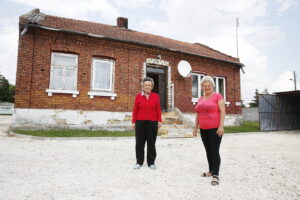
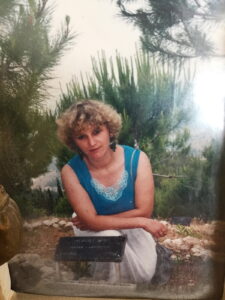
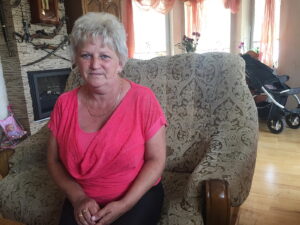
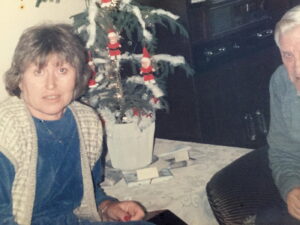
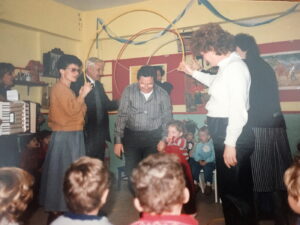
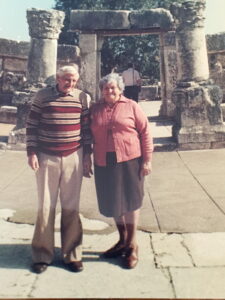
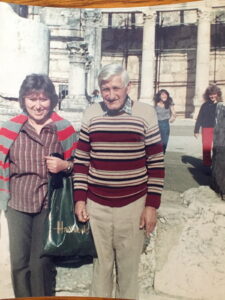
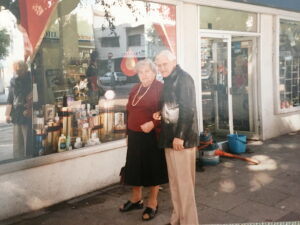
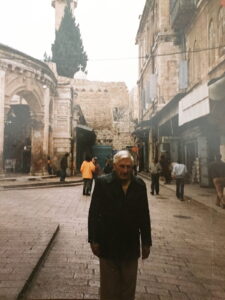
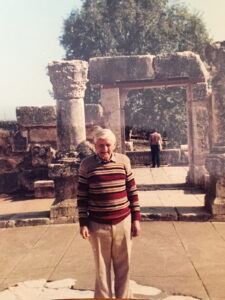
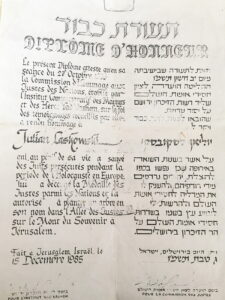
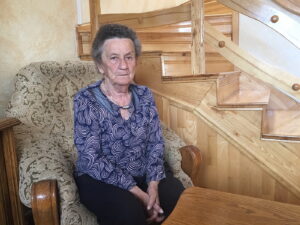
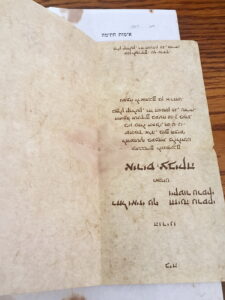
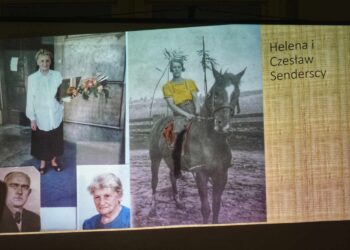
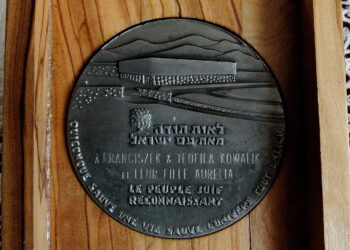
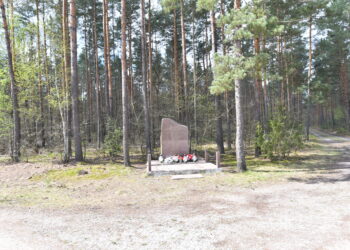
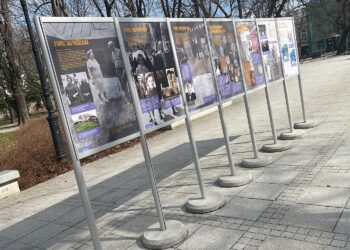
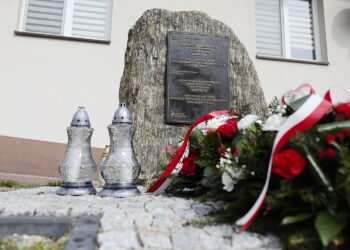
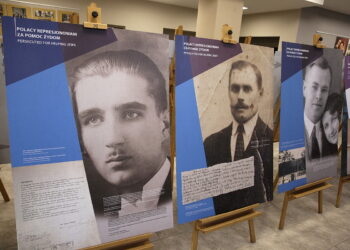
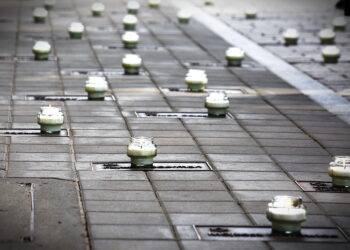
![TAK MINĄŁ DZIEŃ – WTOREK [25 CZERWCA] - Radio Kielce 22.12.2016 Sąd Okręgowy w Kielcach. Pierwsza rozprawa Piotra K. oskarżonego o zabójstwo kibica Korony Kielce / Wojciech Habdas / Radio Kielce](https://radiokielce.pl/wp-content/uploads/2019/06/wh2o6888-20161222-sad-okregowy-piotr-kupiec-rozprawa-112926-350x250.jpg)
